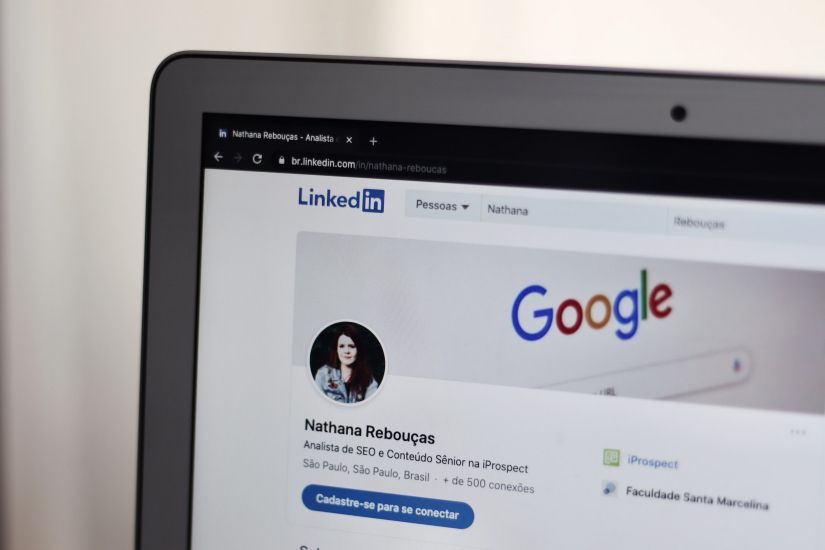In today’s digital age, it’s a common practice for recruiters to reach out to professionals via email, LinkedIn, and by phone whenever there’s a new job opportunity.
If you’re happy where you are and don’t wish to explore other options, it can be tempting to ignore these emails, phone calls, and messages.
Don’t do it. Every outreach could be a future opportunity, even if you’re not interested now. Responding, regardless of your job status, is the best practice.
Here, we’ll show you how to respond to recruiters via email, LinkedIn, and phone with confidence—and without burning any bridges.
How to Respond to Recruiters via Email
Did an email from a recruiter land in your inbox? If you're not interested in discussing the opportunity further, it's time to draft an email response.
When it comes to email, it's important that you respond in a timely manner, as recruiters work fast. The quicker you can let them know you're uninterested, the faster they can move on to other prospects.
Emails tend to get lost in inboxes. So, set a reminder if you can't respond immediately.
Email Template
Here's a simple template you can use to respond to recruiters via email:
Hi [Name of Recruiter],
Thank you so much for reaching out to me. Unfortunately, I'm not interested in this position at this time. However, if I find that I'm looking for another opportunity in the future, I'll for sure get in touch.
Thanks again!
[Your Name]
How to Respond to Recruiters via LinkedIn
Recruiters often use InMail to send messages to potential candidates about new opportunities. After all, LinkedIn makes it easy for recruiters to find candidates that fit the position's requirements.
If you've received InMail from a recruiter, please know there's a wrong way and a right way to respond to recruiters on the platform.
And if you're not actively checking your LinkedIn messages, you should consider doing so to avoid a subpar first impression.
LinkedIn Template
When you're ready to respond, simply copy and paste the following template into your InMail message and make any changes to customize it. Then, send away.
Hi [Name of Recruiter],
Thank you for considering me for the [Name of Role]. While the role is intriguing, I'm not interested in making a move. However, if that changes in the future, I will most definitely be in touch.
Thank you again,
[Your Name]
It's important to note that if you're not interested in additional work or changing positions, you can (and should) make sure your “Open to” status on your LinkedIn profile isn't set to finding a new job.
How to Respond to Recruiters via Phone
Although this is perhaps the most uncommon way recruiters reach out to candidates, it may still happen from time to time.
And some candidates, maybe even you, may feel apprehensive about turning down an opportunity while on the phone. All you need is a simple template (a script of sorts) to follow.
Phone Template
During the call, remember to hear the recruiter out first before explaining your disinterest. After all, it may just be your dream job.
Once the recruiter has explained the position in detail, here is a simple way to respond:
I appreciate you taking the time to reach out to me regarding the [Name of Position] position. I'm not ready to make a career move right now. However, I would like to keep communication open for future opportunities.
What If You Accepted an Initial Interview Call and Are No Longer Interested Afterwards?
Some recruiters will schedule an initial 30-minute or so call as a first “interview” of sorts. If after this call you feel you're no longer interested in moving forward, you can say something along the lines of:
While this position sounds interesting, I no longer wish to move forward. I feel it's not the right fit for me at this time. However, I would love to be considered for future opportunities if and when they become available.
This is also a perfect response for potential employers should you make it further into the interview process. Just be ready to dig deeper into why you believe a position isn't the right fit for you (i.e., type of work or the company's culture).
5 Tips for Speaking to Recruiters When You’re Not Interested in a Position
Whether you must speak to a recruiter over the phone or online, here are five tips you can follow to make the most of each opportunity.
- Be polite: Your recruiter took the time to find you, look over your experience, and reach out to you. So, be respectful and polite.
- Be honest: In every response, be honest and upfront with the recruiter. In some cases, your recruiter may ask for more information about the reasoning behind your disinterest. If it’s because you’re content where you are, tell them. Or, if it’s because the position isn’t the right fit for you, share that info. The recruiter will thank you for your honesty, as it will help them improve their search for other candidates.
- Offer to help: Know someone who might be a great fit for the position? If you have permission, share their contact info with the recruiter. Who knows, you just might help a friend or colleague find the perfect job.
- Save the recruiter’s contact info: One thing's for sure—things change. You may find yourself needing or wanting a new position in the future. Jot down the contact info for the recruiters you speak to. Later, you can use that info to reach out and inquire about job opportunities.
- Say thank you: At the end of the day, that one email from a dedicated recruiter could've connected you with your dream job. Show your appreciation for their efforts by saying thank you.
Always Respond to Recruiters, So You Don’t Burn Your Bridges
If there's one thing you must know after reading this guide, it's this: Always respond to recruiters. Otherwise, you risk burning bridges you may need later on.
And rest assured—as long as you're kind, honest, and grateful in your response, you can't go wrong.




